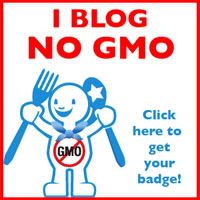 Cacao is a lucrative crop for the big companies and harvested by small communities that have very little and need the work. Because of that, they have no trouble clearing acres of rainforest or seriously trimming the upper trees to grow cacao just so they can feed their family on the meager wage they receive from the big companies. As you can imagine, the birds and animals living in that area lose a home and many die in this process. This not good for the future of our planet (don't get me started on carbon emissions that occur when trees die, and how we lose the carbon eaters - the trees - when we cut them down.)
Cacao is a lucrative crop for the big companies and harvested by small communities that have very little and need the work. Because of that, they have no trouble clearing acres of rainforest or seriously trimming the upper trees to grow cacao just so they can feed their family on the meager wage they receive from the big companies. As you can imagine, the birds and animals living in that area lose a home and many die in this process. This not good for the future of our planet (don't get me started on carbon emissions that occur when trees die, and how we lose the carbon eaters - the trees - when we cut them down.)Ironically, full-sun cacao trees are actually more susceptible to disease and insects (well, the birds left) so harmful chemical pesticides must be used, and of course those drain into the adjacent rainforest nearby. Some of these chemicals do end up in the resulting chocolate that we consume as well.

Since it's all about the money-making crop, conditions for workers are not safe. Their wage is well under the poverty level. Even more shocking, slave labor is sadly not uncommon. The Ivory Coast (where most cocoa is grown) is notorious for using children slaves working in uncomfortable conditions under the hot sun harvesting chocolate for yes, even U.S. owned companies. According to Treehugger: (linked below and picture courtesy)
International Labor Rights Fund filed suit against Nestlé in Federal District Court on behalf of a class of children who were trafficked from Mali into the Ivory Coast and forced to work twelve to fourteen hours a day with no pay, little food and sleep, and frequent beatings. What was Nestlé's response to court questioning? "We are only buyers of a product.”
 Fair-trade chocolate offers the workers a fair wage so they don't need to destroy forest. A fair wage allows communities to flourish with schools, clean water, and food. Shade Grown and Bird Friendly is not just for coffee, look for that in chocolate too. This means that the upper trees are trimmed very little allowing the canopy for nesting birds and other wildlife. Just 50 of us buying one bar of Fair Trade Chocolate each week instead of other chocolates will help maintain an acre of wild lush forest and jungle.
Fair-trade chocolate offers the workers a fair wage so they don't need to destroy forest. A fair wage allows communities to flourish with schools, clean water, and food. Shade Grown and Bird Friendly is not just for coffee, look for that in chocolate too. This means that the upper trees are trimmed very little allowing the canopy for nesting birds and other wildlife. Just 50 of us buying one bar of Fair Trade Chocolate each week instead of other chocolates will help maintain an acre of wild lush forest and jungle.In our family, if it's not organic or fair trade, we just can't enjoy it. It is easy to pass on the Hershey's kiss and snack bar at the bank counter when you know what's behind it and what you are saying you support by taking one. Even my kids don't ask for one because they have a deeper understanding and appreciation for how one little motion, our act, has an impact on the lives of others and our planet.
 Well, maybe they don't have a true understanding but they know it's not something we do and that we make choices like that to better the planet and that's good enough for me!
Well, maybe they don't have a true understanding but they know it's not something we do and that we make choices like that to better the planet and that's good enough for me!We all know that chocolate, dark chocolate, contains three times the potent (flavanoids) antioxidants that fight aging and disease than that of green tea and twice that of red wine. Plus chocolate helps calm stress by relaxing blood vessels and improving blood flow. It makes us feel good since chocolate contains phenylethylamines. Fair Trade Organic Chocolate supports your health, our environment, the lives of others, and makes us feel even better.

Resources:
Chocolate to Save Forests?, National Geographic
The Bitter Truth about Chocolate, Treehugger
Chocolate Buying Guide, The Green Guide


























Not hard to find fair trade chocolates at Whole Foods.
ReplyDeleteThanks for adding us as a friend on Foodbuzz. We welcome you to come visit our site!